India's FY25 GDP Growth Forecast: Deloitte Projects 6.6% - Economic Outlook
By Rediff Money Desk, NEWDELHI Apr 26, 2024 11:02
Deloitte predicts India's FY25 GDP growth at 6.6%, driven by consumption, exports, and capital flows. Learn about the economic outlook and factors influencing the prediction.
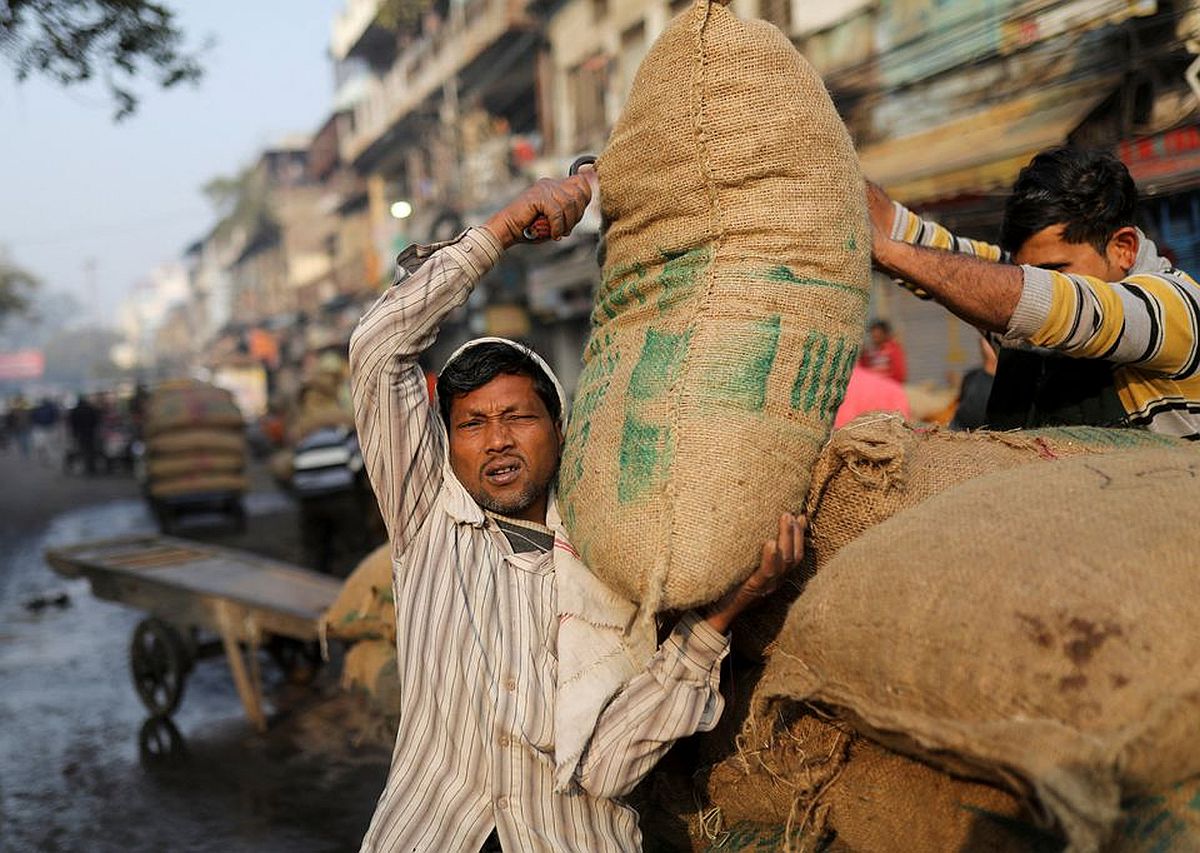
Photograph: Anushree Fadnavis/Reuters
New Delhi, Apr 26 (PTI) Deloitte India on Friday said it estimates India's GDP growth at 6.6 per cent in the current fiscal helped by consumption expenditure, exports rebound and capital flows.
In its India's economic outlook report, Deloitte said the rapid growth of the middle-income class has led to rising purchasing power and even created demand for premium luxury products and services.
With the expectation that the number of middle-to-high-income segments will be one in two households by 2030/31, up from one in four currently, we believe this trend will likely become further amplified, driving overall private consumer expenditure growth, it said.
Deloitte has revised India's economic growth prediction for last fiscal to a range of 7.6 to 7.8 per cent. In January, the firm had projected growth for 2023-24 fiscal in the range of 6.9-7.2 per cent.
The country's GDP growth is estimated to reach around 6.6 per cent in FY 2024-25 and 6.75 per cent in the year after, as markets learn to factor in geopolitical uncertainties in their investment and consumption decisions, Deloitte said in its quarterly update to its economic outlook.
"The global economy is expected to witness a synchronous rebound in 2025 as major election uncertainties get sorted out and the central banks of the West may announce a couple of rate cuts later in 2024. India will likely see improved capital flows and a rebound in exports" said Deloitte India Economist Rumki Majumdar.
Strong growth numbers over the past two years have helped the economy to catch up with the pre-COVID trends. Investment, backed by strong government spending on infrastructure, has helped India maintain a steady recovery momentum, she added.
That said, there are concerns about inflation and geopolitical uncertainties feeding into higher food and fuel prices. At the same time, the prediction of above normal monsoon will likely provide some respite by positively impacting agriculture output and easing pressure on food prices.
Inflation is expected to remain above the Reserve Bank of India's target level of 4 per cent over the forecast period due to strong economic activity, Majumdar said.
Deloitte's FY25 GDP growth estimate is similar to the projections made by the World Bank. It is, however, lower than the projections by the RBI and other agencies. The RBI has projected the Indian economy growth at 7 per cent in the current fiscal.
While the Asian Development Bank (ADB) and Fitch Ratings have estimated growth at 7 per cent, the International Monetary Fund (IMF), S&P Global Ratings and Morgan Stanley projected a 6.8 per cent growth rate for FY25.
Deloitte said even as growth in consumer spending post-pandemic has been fluctuating, there is a visible shift in consumption patterns, with demand for luxury and high-end products and services growing faster than demand for basic goods.
"India is seeing a prominent shift in consumer behaviour toward aspirational spending, which is inevitable in any nation that experiences growing economic prosperity. India's spending share in the luxury and premium goods and services category (such as spending on transport, communication, recreation, etc.) has traditionally been lower than nations such as the United States, China, Japan, and Germany. So, there is, therefore, potential for this ratio to increase further as consumer income grows." Majumdar said.
The report further said that to sustainably boost household spending amidst wealth concentration, declining savings, and rising debt levels, several corrective measures can be implemented. Increasing employment opportunities in rural and semi-urban areas could elevate savings, particularly as employment transitions from agriculture, which represents 44 per cent of employment but only about 18 per cent of GDP, to sectors like manufacturing, services, and construction.
Government investments in infrastructure and initiatives such as Future Skills Prime 2021 for skill enhancement and Ayushman Bharat for health improvements are expected to enhance employability and productivity. Despite the necessity for credit growth to stimulate economic activity, the RBI will have to monitor rising household debt and encourage banks to leverage data analytics for smarter lending decisions, Deloitte said.
In its India's economic outlook report, Deloitte said the rapid growth of the middle-income class has led to rising purchasing power and even created demand for premium luxury products and services.
With the expectation that the number of middle-to-high-income segments will be one in two households by 2030/31, up from one in four currently, we believe this trend will likely become further amplified, driving overall private consumer expenditure growth, it said.
Deloitte has revised India's economic growth prediction for last fiscal to a range of 7.6 to 7.8 per cent. In January, the firm had projected growth for 2023-24 fiscal in the range of 6.9-7.2 per cent.
The country's GDP growth is estimated to reach around 6.6 per cent in FY 2024-25 and 6.75 per cent in the year after, as markets learn to factor in geopolitical uncertainties in their investment and consumption decisions, Deloitte said in its quarterly update to its economic outlook.
"The global economy is expected to witness a synchronous rebound in 2025 as major election uncertainties get sorted out and the central banks of the West may announce a couple of rate cuts later in 2024. India will likely see improved capital flows and a rebound in exports" said Deloitte India Economist Rumki Majumdar.
Strong growth numbers over the past two years have helped the economy to catch up with the pre-COVID trends. Investment, backed by strong government spending on infrastructure, has helped India maintain a steady recovery momentum, she added.
That said, there are concerns about inflation and geopolitical uncertainties feeding into higher food and fuel prices. At the same time, the prediction of above normal monsoon will likely provide some respite by positively impacting agriculture output and easing pressure on food prices.
Inflation is expected to remain above the Reserve Bank of India's target level of 4 per cent over the forecast period due to strong economic activity, Majumdar said.
Deloitte's FY25 GDP growth estimate is similar to the projections made by the World Bank. It is, however, lower than the projections by the RBI and other agencies. The RBI has projected the Indian economy growth at 7 per cent in the current fiscal.
While the Asian Development Bank (ADB) and Fitch Ratings have estimated growth at 7 per cent, the International Monetary Fund (IMF), S&P Global Ratings and Morgan Stanley projected a 6.8 per cent growth rate for FY25.
Deloitte said even as growth in consumer spending post-pandemic has been fluctuating, there is a visible shift in consumption patterns, with demand for luxury and high-end products and services growing faster than demand for basic goods.
"India is seeing a prominent shift in consumer behaviour toward aspirational spending, which is inevitable in any nation that experiences growing economic prosperity. India's spending share in the luxury and premium goods and services category (such as spending on transport, communication, recreation, etc.) has traditionally been lower than nations such as the United States, China, Japan, and Germany. So, there is, therefore, potential for this ratio to increase further as consumer income grows." Majumdar said.
The report further said that to sustainably boost household spending amidst wealth concentration, declining savings, and rising debt levels, several corrective measures can be implemented. Increasing employment opportunities in rural and semi-urban areas could elevate savings, particularly as employment transitions from agriculture, which represents 44 per cent of employment but only about 18 per cent of GDP, to sectors like manufacturing, services, and construction.
Government investments in infrastructure and initiatives such as Future Skills Prime 2021 for skill enhancement and Ayushman Bharat for health improvements are expected to enhance employability and productivity. Despite the necessity for credit growth to stimulate economic activity, the RBI will have to monitor rising household debt and encourage banks to leverage data analytics for smarter lending decisions, Deloitte said.
DISCLAIMER - This article is from a syndicated feed. The original source is responsible for accuracy, views & content ownership. Views expressed may not reflect those of rediff.com India Limited.
You May Like To Read
TODAY'S MOST TRADED COMPANIES
- Company Name
- Price
- Volume
- GTL Infrastructure
- 2.93 ( -4.87)
- 226206286
- IFL Enterprises
- 1.30 (+ 4.84)
- 81461564
- Vodafone Idea L
- 16.79 (+ 0.66)
- 67447398
- NCL Research
- 0.95 ( -4.04)
- 31996628
- Franklin Industries
- 3.73 (+ 3.32)
- 21511209
MORE NEWS

Navi Mumbai Airport ILS Signal Testing Begins
The Airports Authority of India (AAI) has begun ILS signal testing at the...

Air India VRS for Non-Flying Staff Ahead of...
Air India has announced a voluntary retirement scheme (VRS) and voluntary separation...
Fisher Groups Oppose WTO Fisheries Subsidy Talks
Small-scale fisher groups from India, Indonesia, and Bangladesh demand WTO keep...




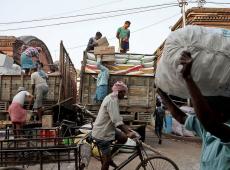
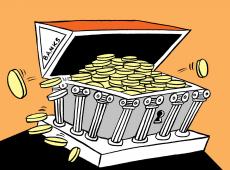
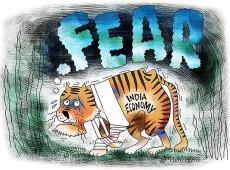


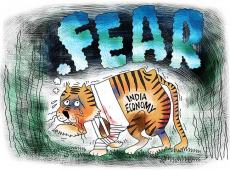
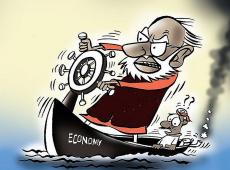
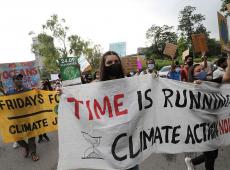
 © 2024 Rediff.com India Limited. All rights reserved.
© 2024 Rediff.com India Limited. All rights reserved.